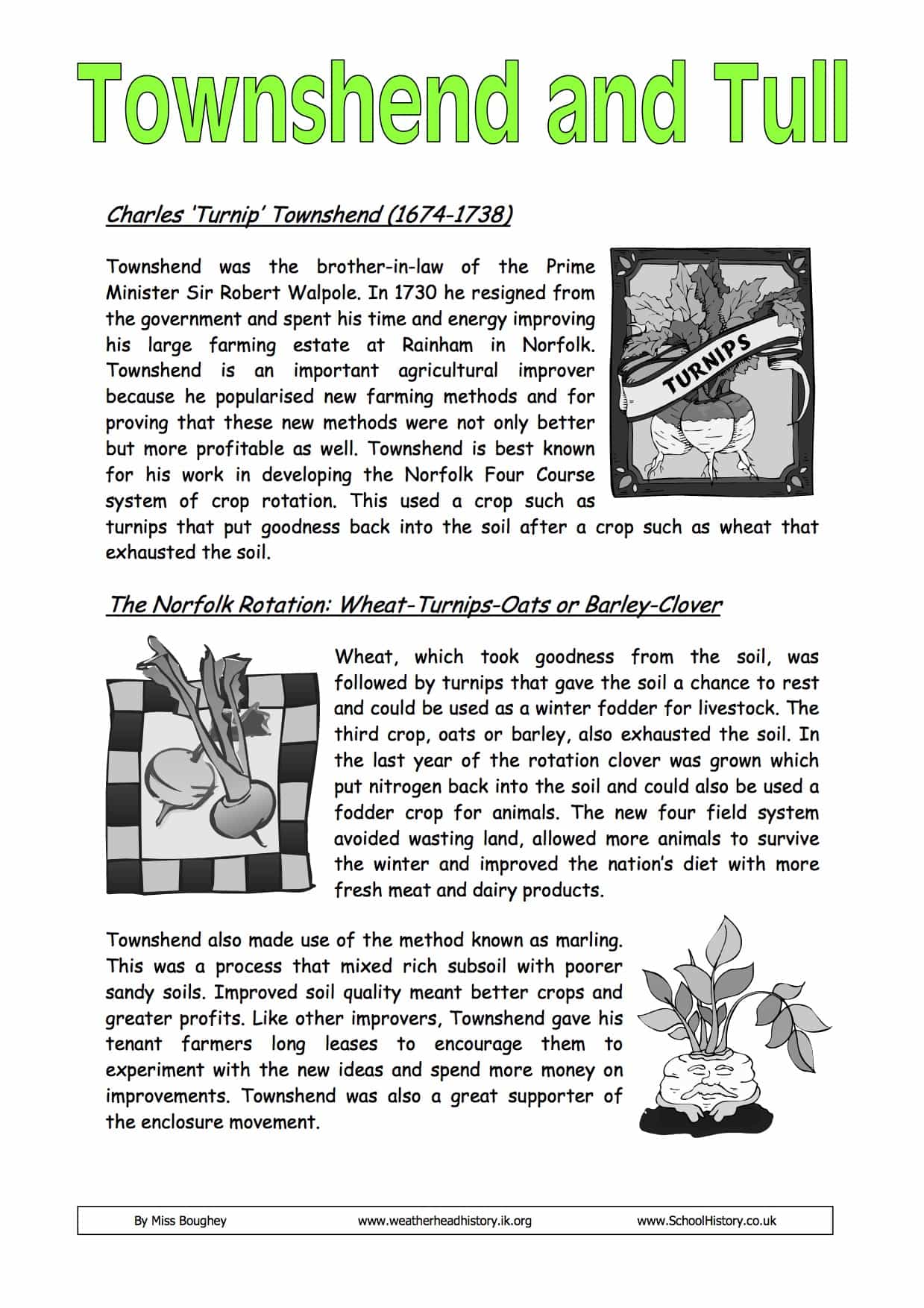Download Charles Townshend and Jethro Tull – English Farming
Click the button below to download this worksheet for use in the classroom or at home.
Download →
Charles ‘Turnip’ Townshend (1674-1738)
Townshend was the brother-in-law of the Prime Minister Sir Robert Walpole. In 1730 he resigned from the government and spent his time and energy improving his large farming estate at Rainham in Norfolk. Townshend is an important agricultural improver because he popularised new farming methods and for proving that these new methods were not only better but more profitable as well. Townshend is best known for his work in developing the Norfolk Four Course system of crop rotation. This used a crop such as
turnips that put goodness back into the soil after a crop such as wheat that exhausted the soil.
The Norfolk Rotation: Wheat-Turnips-Oats or Barley-Clover
Wheat, which took goodness from the soil, was followed by turnips that gave the soil a chance to rest and could be used as a winter fodder for livestock. The third crop, oats or barley, also exhausted the soil. In the last year of the rotation clover was grown which put nitrogen back into the soil and could also be used a fodder crop for animals. The new four field system avoided wasting land, allowed more animals to survive the winter and improved the nation’s diet with more fresh meat and dairy products.
Townshend also made use of the method known as marling. This was a process that mixed rich subsoil with poorer sandy soils. Improved soil quality meant better crops and greater profits. Like other improvers, Townshend gave his tenant farmers long leases to encourage them to experiment with the new ideas and spend more money on improvements. Townshend was also a great supporter of the enclosure movement.
PDF Worksheet:
-
- Aimed at Students studying at UK GCSE or equivalent
- Free to download
- Use as you wish in the classroom or home environment
- Information sheet and challenging tasks.
